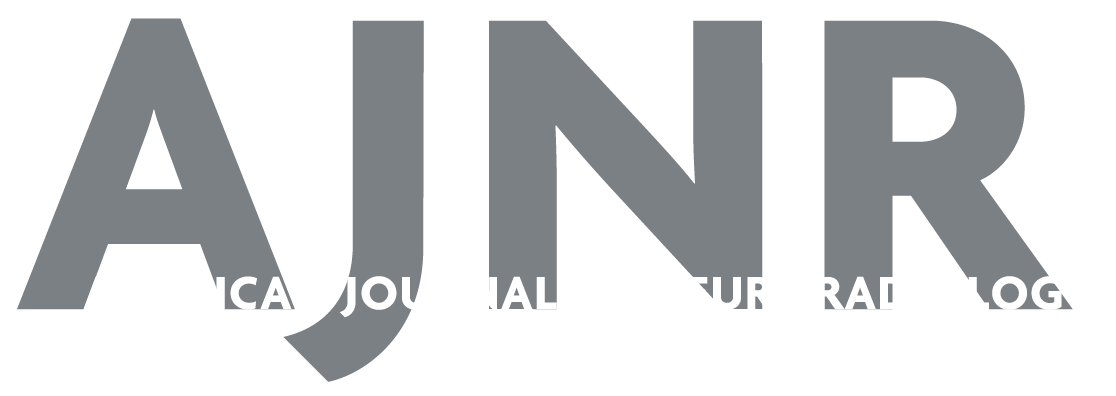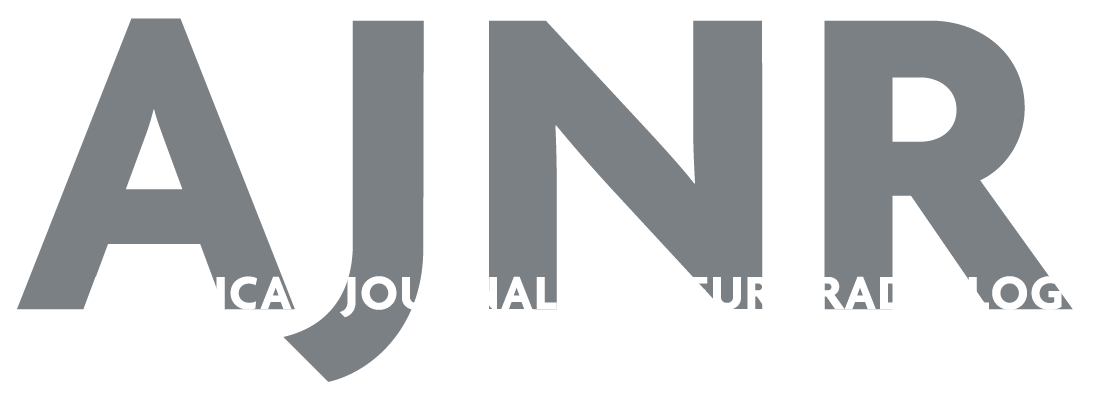Abstract
BACKGROUND AND PURPOSE: Chest CT is a rapid, useful additional screening tool for coronavirus disease 2019 (COVID-19) in emergent procedures. We describe the feasibility and interim outcome of implementing a modified imaging algorithm for COVID-19 risk stratification across a regional network of primary stroke centers in the work-up of acute ischemic stroke referrals for time-critical mechanical thrombectomy.
MATERIALS AND METHODS: We undertook a retrospective review of 49 patients referred to the regional neuroscience unit for consideration of mechanical thrombectomy between April 14, 2020, and May 21, 2020. During this time, all referring units followed a standard imaging protocol that included a chest CT in addition to a head CT and CT angiogram to identify Severe Acute Respiratory Syndrome coronavirus 2 (SARS-CoV-2) infective pulmonary changes.
RESULTS: Overall, 2 patients had typical COVID-19 radiologic features and tested positive, while 7 patients had indeterminate imaging findings and tested negative. The others had normal or atypical changes and were not diagnosed with or suspected of having COVID-19. There was an overall sensitivity of 100%, specificity of 74.1%, negative predictive value of 100%, and positive predictive value of 22.2% when using chest CT to diagnose COVID-19 in comparison with the real-time reverse transcriptase–polymerase chain reaction test. The mean additional time and radiation dose incurred for the chest CT were 184 ± 65.5 seconds and 2.47 ± 1.03 mSv. Multiple cardiovascular and pulmonary incidental findings of clinical relevance were identified in our patient population.
CONCLUSIONS: Chest CT provides a pragmatic, rapid additional tool for COVID-19 risk stratification among patients referred for mechanical thrombectomy. Its inclusion in a standardized regional stroke imaging protocol has enabled efficient use of hospital resources with minimal compromise or delay to the overall patient treatment schedule.
ABBREVIATIONS:
- COVID-19
- coronavirus disease 2019
- MT
- mechanical thrombectomy
- PPE
- personal protective equipment
- PSC
- primary stroke centers
- RT-PCR
- real-time reverse transcriptase–polymerase chain reaction
- SARS-CoV-2
- Severe Acute Respiratory Syndrome coronavirus 2
Footnotes
Disclosures: Kate Pointon—UNRELATED: Employment: Nottingham University Hospital; Expert Testimony: legal reports; Royalties: chest x-ray educational book. Robert Lenthall—UNRELATED: Expert Testimony: Parliamentary Health Service Ombudsman, National Institute of Clinical Excellence, Comments: external advisor to the Parliamentary Health Service Ombudsman, expert advisor to National Institute of Clinical Excellence; Payment for Development of Educational Presentations paid to an individual: faculty member for The European Course in Minimally Invasive Neurological Therapy; Travel/Accommodations/Meeting Expenses Unrelated to Activities Listed: frequent recipient of expenses, Comments: personal expenses from many device manufacturers to support attendance at meetings during the past 2 decades, benefit from funding to professional interest groups to support such meetings; Other: past recipient of educational grants, Comments: In the past, Nottingham University Hospitals has received grants from MicroVention and Cordis Neurovascular to support an interventional neuroradiology fellowship training post, no current funding.* Norman McConachie—UNRELATED: Consultancy: MicroVention, Comments: for educational activity; Payment for Lectures Including Service on Speakers Bureaus: Stryker; Travel/Accommodations/Meeting Expenses Unrelated to Activities Listed: MicroVention. Wazim Izzath—UNRELATED: Payment for Lectures Including Service on Speakers Bureaus: Stryker, Comments: educational consultancy. *Money paid to the institution.
- © 2020 by American Journal of Neuroradiology
Indicates open access to non-subscribers at www.ajnr.org











